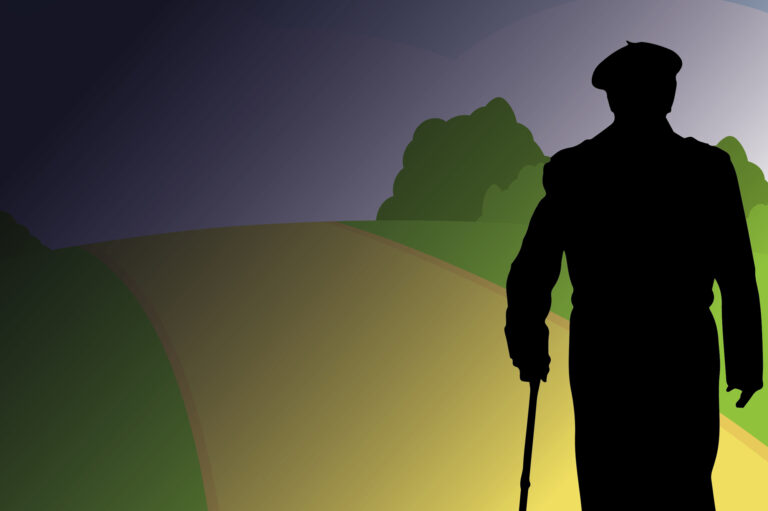
Alex Camp is a freelance journalist with a master’s in public administration, specializing in public affairs reporting, from University of Illinois Springfield.
Tips to prevent a loved one from leaving home and losing their way
Caring for someone with Alzheimer’s disease means always being vigilant. About 60% of people with the disease will wander at least once during their diagnosis, according to the Alzheimer’s Association.
Wandering is dangerous for people with Alzheimer’s disease because they may leave their home and end up lost, unaware of where they are or how to get back.
Look for signs that your loved one is at risk for losing their way. “If they return from a walk or a drive later than usual, or they forget how to get to familiar places — those are all warning signs that they could be at risk for getting lost,” says Peggy Rubenstein, manager of care consultation for the Alzheimer’s Association Illinois Chapter.
Try these tips to prevent a loved one from wandering unaccompanied
 Avoid nighttime bathroom trips. Limit fluid intake two hours before bedtime, and make sure the person uses the bathroom before bed. This may help prevent them from waking up to use the bathroom and wandering out the front door.
Avoid nighttime bathroom trips. Limit fluid intake two hours before bedtime, and make sure the person uses the bathroom before bed. This may help prevent them from waking up to use the bathroom and wandering out the front door.
 Hide outside clothes. Keep clothes such as hats and shoes out of sight, so that seeing them doesn’t trigger ideas associated with leaving the home.
Hide outside clothes. Keep clothes such as hats and shoes out of sight, so that seeing them doesn’t trigger ideas associated with leaving the home.
 Install alarms. Use devices that alert you when someone opens a door or window in your home. Additionally, use a pressure-sensitive mat with an alarm at the bedside or in front of the bedroom door to signal movement.
Install alarms. Use devices that alert you when someone opens a door or window in your home. Additionally, use a pressure-sensitive mat with an alarm at the bedside or in front of the bedroom door to signal movement.
 Stash the keys. Stow away the car keys in case your loved one attempts to drive without knowing their way around.
Stash the keys. Stow away the car keys in case your loved one attempts to drive without knowing their way around.
 Camouflage doors. Disguise doors and doorknobs by painting them the same colors as the walls. This makes it harder for someone with dementia to locate the home’s exit.
Camouflage doors. Disguise doors and doorknobs by painting them the same colors as the walls. This makes it harder for someone with dementia to locate the home’s exit.
 Track location. Have your loved one wear a GPS device, such as a smart watch or Tile tracker. If they wander, you can easily find their location.
Track location. Have your loved one wear a GPS device, such as a smart watch or Tile tracker. If they wander, you can easily find their location.






